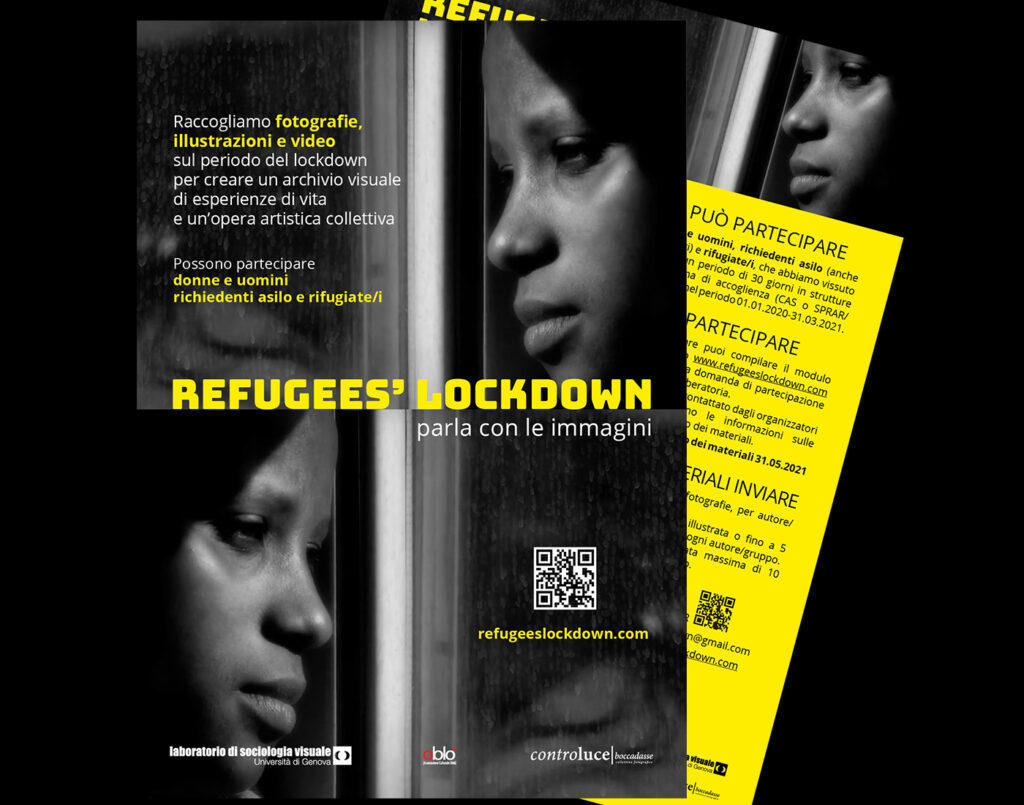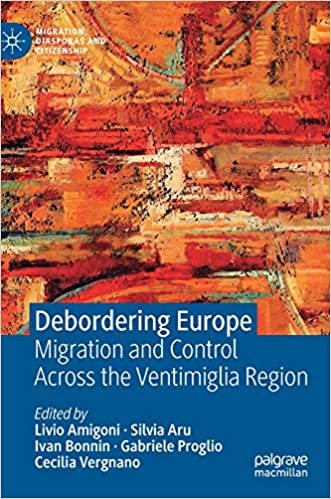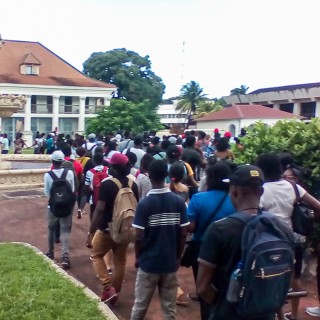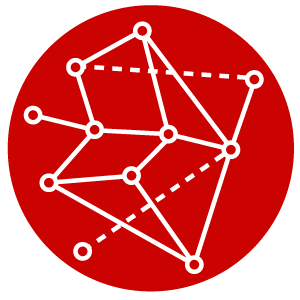Refugees’ Lockdown. An art-based research project

Refugees’ Lockdown is an art-based research project organized by the Visual Sociology Research Group, the Oblò Association and the Controluce photographic club.
The goal is to create a visual archive and a collective art work on the experience of the pandemic for women and men seeking asylum or refugees. All those who have spent at least one month in the Italian reception system between January 2020 and the end of the initiative (May 31, 2021) can send their visual stories of the pandemic; the project is not focused on health aspects, rather on the consequences the pandemic entailed on the daily life of asylum seekers and refugees.
Photographs, illustrations and videos are admitted.
More information available ont the project’s website: www.refugeeslockdown.com
Refugees ‘Lockdown è un progetto di ricerca artistico organizzato dal Laboratorio di Sociologia Visuale, dall’Associazione Oblò e dal circolo fotografico Controluce.
L’obiettivo è creare un archivio visuale ed un’opera d’arte collettiva sull’esperienza della pandemia per le donne e gli uomini in cerca di asilo o rifugiati.
Tutti coloro che hanno trascorso almeno un mese nel sistema di accoglienza italiano tra gennaio 2020 e la fine dell’iniziativa (31 maggio 2021) possono inviare il loro racconto visivo della pandemia; il progetto non è focalizzato sugli aspetti sanitari, quanto sulle conseguenze che la pandemia ha comportato sulla vita quotidiana di richiedenti asilo e rifugiati.
Sono ammesse fotografie, illustrazioni e video.
Maggiori informazioni disponibili sul sito web del progetto: www.refugeeslockdown.com
art-based research, asylum-ssekers, refugees, sociologia visuale, visual archive





